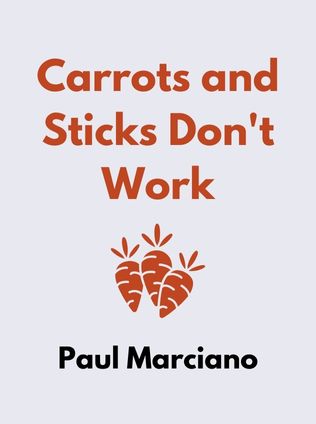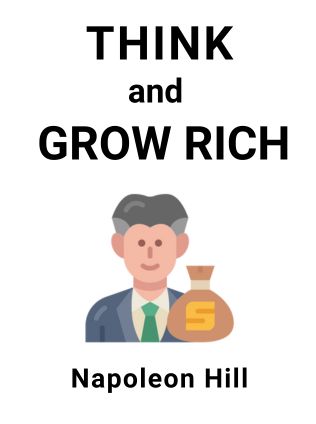
Carrots and Sticks Don't Work
Build a Culture of Employee Engagement with the Principles of RESPECT
By Paul Marciano
Published 06/2010
About the Author
Paul Marciano, Ph.D., is an expert in the fields of organizational behavior and human resources management. With over two decades of experience, he has dedicated his career to understanding the dynamics of workplace motivation and engagement. Marciano is a respected consultant, keynote speaker, and coach, working with organizations across various industries to enhance employee performance and satisfaction. His work is grounded in a deep understanding of human behavior, and his insights are shaped by his academic background and extensive real-world experience. In "Carrots and Sticks Don’t Work," Marciano combines his expertise to challenge conventional wisdom and offer a more sustainable approach to motivating employees.
Main Idea
"Carrots and Sticks Don’t Work" is a compelling critique of the traditional reliance on financial incentives to drive employee performance. Marciano argues that while bonuses and other monetary rewards might offer short-term boosts in productivity, they fail to address the deeper needs and motivations that sustain long-term engagement and commitment. Instead, Marciano introduces the RESPECT model, which emphasizes the importance of treating employees with dignity and respect, empowering them to take ownership of their work, and fostering an environment where they feel genuinely valued. According to Marciano, true motivation comes from within, and it is the role of leaders to cultivate a culture that nurtures this intrinsic motivation.
Table of Contents
- Recognition
- Empowerment
- Supportive Feedback
- Partnering
- Expectations
- Consideration
- Trust
Recognition
Recognition is the first pillar of Marciano's RESPECT model and is a critical component of effective motivation. Recognition involves more than just occasional praise; it is about consistently acknowledging the efforts and accomplishments of employees in meaningful ways. Marciano emphasizes that recognition should be an integral part of a supervisor's job, not an afterthought. When employees feel their contributions are noticed and valued, their sense of purpose and commitment to the organization grows.
Marciano argues that "employee recognition is not just a nice thing to do; it’s a strategic tool that drives business success." He suggests that recognition should be specific, timely, and aligned with the values and goals of the organization. For instance, recognizing an employee for their creative problem-solving skills reinforces the importance of innovation within the company. Moreover, recognition should be personalized; what is meaningful to one employee might not resonate with another.
“Recognition is powerful because it taps into a fundamental human need to feel appreciated and valued. When employees are recognized for their hard work and contributions, they are more likely to go the extra mile and stay committed to their organization.” – Paul Marciano
effective recognition include:
- Publicly acknowledging an employee's contribution during team meetings.
- Providing a handwritten note of thanks for a job well done.
- Offering development opportunities as a form of recognition for outstanding performance.
- Recognizing milestones such as work anniversaries or project completions with a small celebration.
Empowerment
Empowerment is about giving employees the tools, resources, and autonomy they need to excel in their roles. Marciano believes that empowerment is not just about delegating tasks but about genuinely trusting employees to take ownership of their work. This involves providing adequate training and resources, clearly communicating expectations, and then stepping back to let employees take the lead.
Sign up for FREE and get access to 1,400+ books summaries.
You May Also Like
The Subtle Art of Not Giving a F*ck
A Counterintuitive Approach to Living a Good Life
By Mark MansonThe Lean Startup
How Today's Entrepreneurs Use Continuous Innovation to Create Radically Successful Businesses
By Eric RiesWho Moved My Cheese?
An Amazing Way to Deal with Change in Your Work and in Your Life
By Spencer Johnson, M.D.You Are A Badass
How to Stop Doubting Your Greatness and Start Living an Awesome Life
By Jen SinceroDaring Greatly
How the Courage to Be Vulnerable Transforms the Way We Live, Love, Parent, and Lead
By Brené Brown



















